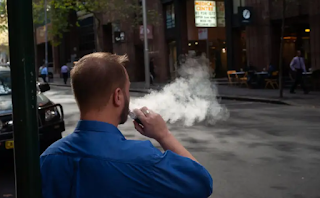Nicotine-Free Vapes Banned in Australia: Government Takes Action Against Recreational Use
Australia's Health Minister Mark Butler announced a new policy that aims to eliminate recreational vaping by banning nicotine-free vapes and only allowing vapes with nicotine to be sold by pharmacies in medical-style packaging to people with prescriptions. According to the health minister, vaping is creating a new generation of nicotine dependency, which poses a significant threat to Australia's success in tobacco control. This article will explore the rationale behind the new policy, its potential impact, and the government's plans for implementing the new regulations.
Background on Australia's Vaping Policy
Since 2021, nicotine-containing vapes are only available to people with prescriptions from their doctors to help them quit smoking. However, nicotine-free vapes have been legally available to buy in convenience stores, petrol stations, and other retailers. The availability of these products has made them difficult to regulate, resulting in many products being falsely labelled as nicotine-free or not listing nicotine in the ingredients, even when it is there.
According to Oliver Jones at RMIT University in Melbourne, this situation is problematic, as it allows the sale of unregulated products that can cause harm to users. Becky Freeman at the University of Sydney also notes that nicotine-containing products that often come in bright packaging with fruity flavours are getting young people hooked. A national survey conducted in 2019 shows that 5.3 per cent of 18 to 24-year-olds were using e-cigarettes, almost double the rate in 2016. Additionally, research suggests that those using them are three times as likely to take up smoking.
Policy Objectives
The new policy aims to tackle these issues by banning nicotine-free vapes and imposing stricter regulations on nicotine-containing vapes. The amount of nicotine that these products are allowed to contain will be reduced, flavours and colourings will be restricted, and they will have to be sold in pharmaceutical-looking packaging. Single-use disposable vapes will also be banned. This move is expected to reduce the accessibility and appeal of these products to young people.
Potential Impact of the Policy
While the new policy is expected to help reduce the number of nicotine-dependent individuals, some concerns have been raised about its potential impact. For instance, critics argue that restricting vaping might drive people back to traditional cigarettes, which are more harmful. Although this might be a potential unintended effect of the policy, it is unlikely to occur as smokers who want to quit are still able to get nicotine-containing vapes with a doctor's prescription.
According to Jones, today's announcement is a welcome move by the government, although there may be potential unintended effects. It is a bold move, given that Australia has one of the lowest smoking rates globally, with only 11% of people over 15 smoking daily. The country has achieved this by introducing mandatory plain packaging for cigarettes with graphic health warnings, increasing their cost through taxes, and banning smoking in many public areas. Cracking down on recreational vaping is seen as crucial to preventing a new generation of nicotine addicts.
Implementation of the New Regulations
While the new policy is still being developed, the government has stated that it will be implemented soon. The government intends to make it clear that vapes are pharmaceutical products by mandating pharmaceutical-looking packaging and eliminating fun flavours and colours. This measure will ensure that nicotine-containing vapes are only available through pharmacies, and only to those with a prescription from a doctor.
Conclusion
The Australian government's decision to ban nicotine-free vapes and only allow vapes with nicotine to be sold by pharmacies in medical-style packaging is a significant step towards reducing nicotine dependency and promoting tobacco control. It will help prevent young people from being addicted to nicotine and possibly taking up smoking.

